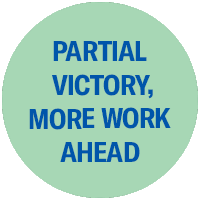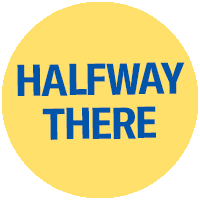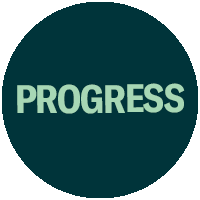2020 General Assembly Report
ACLU of Maryland 2020 General Assembly Report
The 2020 General Assembly session came to a premature halt with the onset of the COVID-19 pandemic. Nonetheless, the ACLU is proud to report some successes on various civil rights and civil liberties issues, while other efforts faced some challenges.
LEGISLATIVE PRIORITIES
 I. Police Transparency – Disappointment
I. Police Transparency – Disappointment
This session, the ACLU continued to fight for transparency over police discipline. Under current law, if you file a complaint of police misconduct, you cannot find out how the department investigates your complaint. All you can find out is the outcome and the discipline. Together with our partners, we fought hard to amend and pass HB 1221 / SB 1029, to allow for transparency over police discipline, regardless of whether the officers were punished. Communities deserve to know about misconduct that flies under the radar – when police departments conduct slow, weak, or biased investigations (or no investigation at all!) and thereby find abusive officers innocent of wrongdoing.
Unfortunately, the House Judiciary Committee passed a convoluted and unworkable bill that would allow very limited transparency over misconduct that police departments do not punish.
Meanwhile, we are disappointed that the Chair of the Senate Judicial Proceedings Committee took no action whatsoever on the bill, he simply left the bill in the drawer.
In addition to the police transparency legislation, we were proud to stand with the family of Anton Black in calling for a more comprehensive approach to police reform, including independent investigation of police misconduct, more robust community oversight, limits to the use of force, and transparency.
 II. Equity for Maryland’s School Children – Partial Victory, More Work Ahead!
II. Equity for Maryland’s School Children – Partial Victory, More Work Ahead!
The Blueprint for Maryland’s Future bill adds $3.4 billion to education over the next 10 years. Some of the key services that students and families can expect to see as funding ramps up include prekindergarten for 3- and 4-year old students from low income families; additional funding for schools that have “concentrated" poverty for a community school coordinator, healthcare professional, and wrap around services; and a significant increase in funding for special education, modest increases for students who are English language learners and/or from families with low income.
The ACLU and allies focused on advocating for strong race and wealth equity measures, which were lacking in the proposed bill. We succeeded in getting amendments to provide grants to historically Black colleges and universities for recruitment of more teachers of color; to require private pre-k providers to follow state guidelines on suspensions and discipline; and to ensure that English language learners are accurately counted so that they can receive full funding in the formula. Working in coalition with the Maryland Alliance for Racial Equity in Education, we were able to require disaggregated data collection on several data points which can help bolster our arguments for setting intentional goals on race and equity in the future.
However, there are several critical amendments that were not adopted by the General Assembly, including funding “adequacy,” which is about ensuring that school districts have the funds for full programming according to state standards – such as staffing levels to comply with COMAR standards for Fine Arts. Further, districts furthest away from funding adequacy will likely not receive enough funding to meet even the previous formula’s baseline for adequacy in the early years during the phase in of Blueprint funding.
The ACLU will be working with our allies to ensure public education funding and policies meet our state constitutional standards, whether that be during a possible interim legislative session this year, or during next year’s General Assembly.
 III. Immigrants’ Rights – Disappointment
III. Immigrants’ Rights – Disappointment
The ACLU was very proud to fight for immigrants’ rights alongside other advocates, as we force the General Assembly to make this issue a legislative priority. One heartbreak of the shortened session is that three important bills we feel confident would have passed instead died suddenly at the last minute.
SB 901 (The Trust Act) would address the fear, racial profiling, and abusive police practices that immigrants face by preventing local law enforcement from collaborating with ICE. SB 850 (Dignity Not Detention) would ban private immigration detention centers in Maryland. And SB 903 (Sensitive Locations) would require the Attorney General to issue guidance for schools, hospitals, and courthouses to develop policies limiting civil immigration enforcement on their premises.
The Senate Judicial Proceedings Committee was scheduled to vote on SB 901 and SB 850, and had the necessary votes to pass both bills out of committee and through the full Senate chamber. Unfortunately, the public health emergency unexpectedly upended the schedule and these bills did not receive a vote.
Although we did not anticipate the session ending so early, we are committed to coming back even stronger next session to pass these bills, because Maryland’s immigrant communities face the ongoing emergency of extreme and cruel federal enforcement.
 IV. Taking Politics Out of Parole – Halfway There!
IV. Taking Politics Out of Parole – Halfway There!
The ACLU has long supported reform to our parole system for Marylanders given parole-eligible life sentences. Maryland is one of only three states in the U.S. where the Governor has to approve the recommendations of the Parole Commission before an individual may be paroled. This unusual process injects politics into the parole system, and has resulted in very few people being paroled during the last three decades. This year, we supported HB 1219 / SB 817, which would have eliminated the need for the Governor’s approval of parole. In order to secure enough votes to override a veto, the bill also required that persons serve at least 20 years before becoming eligible for parole.
As in 2017, this year the bill made it halfway, passing through the House of Delegates with a veto proof majority, but it was then was stalled in the Senate Judicial Proceedings Committee. We will regroup and strategize with our partners to get the bill passed in 2021.
 V. Defending Children’s Right to Remain Silent – Disappointment
V. Defending Children’s Right to Remain Silent – Disappointment
This session the ACLU took on new legislation, HB 624 / SB 593, which would have required an attorney to be present when a child is first interrogated by law enforcement. The bill also ensures that parents/guardians for the child are notified when the child is taken into custody. There is currently no law in place that requires an attorney consultation prior to questioning a child. At the bill hearing, persons directly impacted by the criminal legal system shared powerful stories about their experience being questioned by law enforcement as a child and their subsequent wrongful conviction.
Unfortunately, there were technical aspects of the bill that remained unsettled when the legislature adjourned early, so the bill did not make it out of either the House or Senate committees.
 VI. Expanding the Vote – Halfway There!
VI. Expanding the Vote – Halfway There!
The ACLU understands that voting is the hallmark of our democracy. We fundamentally believe that, if an individual is eligible to vote, whether incarcerated or not, that right must be honored. This session we supported partner organizations to advocate for HB 568 / SB 372, which would have ensured that Marylanders who are incarcerated and eligible to vote have meaningful access to the ballot. The bill required the State Board of Elections to establish a program to disseminate voting information, voter registration applications, and absentee ballot applications to all eligible voters in correctional facilities.
To minimize concerns from members of the House Ways and Means committee about a high fiscal note, the bill was amended to require that each correctional facility disseminate written instructions directly to each eligible voter on absentee voting and absentee ballot applications rather than by mail. As amended, HB 568 / SB 372 also required that the Department of Public Safety and Corrections electronically transmit to the State Board of Elections the names and addresses of all Marylanders who are incarcerated but still eligible to vote. For accountability and transparency purposes, the bill required that the State Board of Elections submit a report to the Maryland General Assembly each year, which includes the number of eligible voters who registered to vote and the number of eligible voters who voted successfully by absentee ballot.
HB 568 successfully passed the House, but unfortunately the bill did not receive a vote in the Senate Education, Health, and Environmental Affairs Committee.
 VII. Equality for Incarcerated Women – Victory!
VII. Equality for Incarcerated Women – Victory!
After several years of advocates pushing for a women’s prerelease facility, the ACLU and our partners finally passed SB 684, which will make women more successful when they reenter their communities. Currently, Maryland has several low-level facilities across the state for men who are preparing to exit the criminal legal system, but none for women. This inequity hurts women who are beginning the difficult transition back home. It also hurts their communities, because so many women are caretakers for children and families.
Earlier this year, the Department of Public Safety and Corrections unveiled a plan to develop a co-ed prerelease facility within the maximum-security prison at Jessup, but advocates said that was not good enough, because women need their own community-based facility with gender-responsive services. SB 684 requires DPSCS to determine the communities where most women will be returning, and to begin developing the facility there by next year.
We are particularly proud of the tireless efforts of our partners, Out for Justice Inc. and the Maryland Justice Project—two organizations led by women who were formerly incarcerated. These partners have led the fight for justice for women and we are honored to stand with them.
You can listen to our recent podcast about this important gender equity issue here.
OTHER CRITICAL LEGISLATION
In addition to the above legislative priorities, we also dedicated time, energy, and resources to the following bills and efforts:
 1. Hogan’s Misguided ‘Tough-on-Crime’ Bill – Victory!
1. Hogan’s Misguided ‘Tough-on-Crime’ Bill – Victory!
The ACLU was disappointed to see the Senate Judicial Proceedings Committee dedicate unparalleled time and energy to passing SB 35 – Governor Hogan’s misguided and counterproductive “tough-on-crime” bill. This bill would have made it easier to prosecute and incarcerate Marylanders – an approach we know has not made our communities safer. As in past sessions, the Committee cobbled together provisions from other bills and passed it out of committee with unreasonable urgency. Fortunately, the House Judiciary Committee was a backstop. The Chair canceled the hearing on SB 35, so it did not pass.
 2. Strengthening Fair Housing Laws – Victory!
2. Strengthening Fair Housing Laws – Victory!
After many years of advocacy, a strong coalition worked together to pass HB 231 / SB 530, the HOME Act. This bill expands Maryland’s fair housing laws by preventing landlords from discriminating against people based on their source of income. Many people, particularly those with housing vouchers, still face discrimination and are denied housing, even when they can afford to pay. This impacts seniors, veterans, people with disabilities, and working people, and prevents them from living in safe and healthy communities. Both the House and Senate passed the HOME Act with veto-proof majorities!
 3. Fixing Probation Consequences for Immigrants – Disappointment
3. Fixing Probation Consequences for Immigrants – Disappointment
Maryland’s probation before judgment (PBJ) statute currently has a loophole that causes unintended consequences for immigrants. PBJ is meant to be an alternative way for people to take responsibility for low-level offenses without being burdened for life with a criminal record. However, while PBJ is not a conviction under Maryland law, it is a conviction under federal immigration law, which subjects immigrants to harsh penalties including deportation. By slightly altering the statutory language, SB 653 / HB 213 would leave the process the same for almost all defendants, while eliminating these severe consequences for immigrants, making this sentence fairer for everyone. SB 653 passed the Senate unanimously, but unfortunately the Judiciary Committee did not vote on the House bill at all.
 4. Increasing Public Access to Government Documents – Disappointment
4. Increasing Public Access to Government Documents – Disappointment
There were several bills to amend Maryland’s Public Information Act (PIA) and improve the process for accessing public documents to help keep our government accountable. HB 502 / SB 590 would codify recommendations from the PIA Ombudsman to expand the Compliance Board’s jurisdiction to decide more disputes, and require agencies to proactively disclose records and annually track and report on PIA requests and responses. Two other bills, HB 401 / SB 758 and HB 42 / SB 67 would provide more fee waivers for low income and public interest requesters, and reduce agencies’ response time, which would have made the process clear and more equitable. Unfortunately, all three of these bills stalled in committee.
 5. Drug Policy Reform – Progress!
5. Drug Policy Reform – Progress!
This session, the ACLU worked on a couple of bills to reverse the harmful effects of the failed war on drugs in Maryland.
We supported HB 550, which would have raised the civil possession amount from 10 grams to one ounce of marijuana, bringing Maryland into line with the majority of states that have decriminalized simple possession. In addition, the bill would have addressed an increasing trend in which people in possession of less than 10 grams of marijuana are still charged with possession with the intent to distribute – charges most often targeted at Black and Brown people. The bill created a rebuttable presumption that possession of 1 ounce or less of marijuana alone is not enough to charge someone with possession with intent to distribute. HB 550 successfully passed the House, but unfortunately the bill did not receive a vote in the Senate Judicial Proceedings Committee.
We also supported HB 83 / SB 699, in order to eliminate barriers to employment, education and housing due to misdemeanor marijuana possession convictions. The bill requires that Maryland Judiciary Case Search shield criminal cases which only involve possession of and the charge was given before October 1, 2014. This bill successfully passed both the House and Senate.
 6. Prisoner’s Rights – Halfway There!
6. Prisoner’s Rights – Halfway There!
The ACLU continued to push for greater transparency and accountability behind bars this session. We supported HB 979, which would have required the Department of Public Safety and Correctional Services to report the cost of calls and commissary products such as medication and feminine hygiene products. The bill also required Maryland Correctional Enterprises to include in their annual report, the demographics of workers and their wages. This bill passed the House, but unfortunately the bill did not receive a vote in the Senate Judicial Proceedings Committee.
 7. Accountability for Alternative Schools – Halfway There!
7. Accountability for Alternative Schools – Halfway There!
This important bill HB 1022 / SB 830 would have required each county board of education to report data and information of the alternative schools in their districts, which is especially crucial to have data for students of color and students with disabilities, as they are disproportionately targeted in school discipline practices. There was overwhelming support for this legislation in the House of Delegates, where it passed unanimously. With the quick adjournment of session, the bill was not given a vote in the Senate.
 8. Equitable Funding for Public School Facilities – Victory!
8. Equitable Funding for Public School Facilities – Victory!
The ACLU supported the Built to Learn Act, which will provide up to $2.2 billion in school construction funding for Maryland districts statewide. This bill failed last year but legislative leaders made it a priority this year, as there are significant school facility deficiencies statewide in every district related to health and safety, overcrowding, and inadequate spaces. This session, there is also a significant amount of needed funding in the annual capital budget for existing school construction programs.
 9. Non-Discrimination in Publicly-Funded Schools – Halfway There!
9. Non-Discrimination in Publicly-Funded Schools – Halfway There!
The ACLU’s efforts to require that every school receiving public taxpayer dollars is prevented from discriminating did not go unnoticed. The bill HB 1204 / SB 993 received broad support and an amended version passed out of the House. Unfortunately, the Senate Judicial Proceedings Committee did not vote on the bill.
 10. Juvenile Fines and Fees – Victory!
10. Juvenile Fines and Fees – Victory!
Together with our partners, the ACLU advocated for HB 36, which passed the House and the Senate and is on its way to Governor Hogan’s desk. The bill addresses financial barriers children in Maryland and their families face in the form of court fees, fines, and other costs, which can ensnare a young person within the system long after their case has been closed. We are excited about the passage of this legislation and the removal of undue financial hardship on young Marylanders.
 11. Confidentiality for Juvenile Records – Victory!
11. Confidentiality for Juvenile Records – Victory!
A very important bill passed both the House and Senate, SB 314, which keeps confidential the records of children whose cases are transferred from adult to juvenile court. We look forward to Governor Hogan signing this bill into law.
 12. Racial Justice – Victory!
12. Racial Justice – Victory!
This session, the ACLU opposed HB 741, which purported to establish an Empowering Communities to Counter Racially Motivated Violent Extremism Program Fund to identify warning signs of racially motivated violent extremism. Countering Violent Extremism programs have been established across the country and even here in Maryland. Typically, these programs are funded by the federal government and involve the deployment of local community members to collect information about their neighbors, other members of their faith, and even students. This tactic sows distrust and division within what may otherwise be close-knit, peaceful communities. Fortunately, together with partner organizations, we successfully advocated with the bill’s lead sponsor to amend the bill to address our concerns. Ultimately, the bill did not make it out of committee.
 13. Race-based Traffic Stops – Victory!
13. Race-based Traffic Stops – Victory!
In 2016, the ACLU led the effort to make the offense of hanging an item from your rearview mirror a secondary traffic violation, which means that a police officer may not issue a citation for this violation unless the officer had first stopped the driver for another suspected violation.
This year, we expanded on that effort with the passage of HB 200 / SB 859 which makes the placement of an object framing or bordering the edges of a registration plate also a secondary offense.
These are offenses that pose little to no public safety threat. Making them secondary offenses allows law enforcement to address the violation as a matter of safety, without the offenses being used for pretextual racially biased traffic stops.
 14. Economic Justice – Victory!
14. Economic Justice – Victory!
In 2012, Anne Arundel County established a warrant intercept program to allow the Comptroller to withhold the income tax refunds of persons with outstanding warrants. The program expired in 2019 and HB 124 / SB 53 tried to reinstate it. The program disproportionately withheld refunds from Black Marylanders and had a clear impact on communities with low income. We were successful in opposing the bill – it did not make it out of either the House or Senate committees – and Anne Arundel County will no longer run this ill-conceived program.